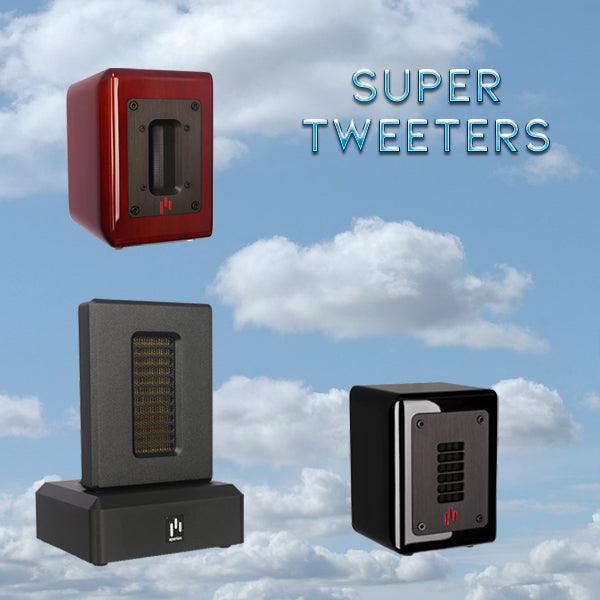 One of the most common questions we get is, “What’s the difference between a bookshelf speaker and a tower speaker?” While this may seem obvious to some, many novices aren’t sure what the real differences are. From a technical standpoint it’s just physics – sound is literally the physical movement of air. This is why subwoofers are larger and tweeters are smaller. It depends on the frequencies you are trying to reproduce and different sized drivers are more or less capable of doing that. I think most people would agree that if you are without constraints, a tower speaker is the most advantageous. Because generally speaking, a tower is going to sound fuller than a bookshelf. But, there are situations where a bookshelf might win out in a Pepsi Challenge.
One of the most common questions we get is, “What’s the difference between a bookshelf speaker and a tower speaker?” While this may seem obvious to some, many novices aren’t sure what the real differences are. From a technical standpoint it’s just physics – sound is literally the physical movement of air. This is why subwoofers are larger and tweeters are smaller. It depends on the frequencies you are trying to reproduce and different sized drivers are more or less capable of doing that. I think most people would agree that if you are without constraints, a tower speaker is the most advantageous. Because generally speaking, a tower is going to sound fuller than a bookshelf. But, there are situations where a bookshelf might win out in a Pepsi Challenge.
-
Music or movies?
If you primarily listen to music, then you would definitely want to lean toward towers. Critical music listening tends to command a higher level of focus from the listener and a tower will be the most capable across a wider frequency spectrum. If you are mostly watching movies, the heavy lifting will fall on the center channel, so having smaller front L/R speakers can be a viable option.
-
Do you have a subwoofer?

With a sub, it’s much easier to get away with bookshelf speakers as well, since the sub will be handling the duties below 80 Hz or so. In a home theater environment the sub is an integral component since the surround mix includes an LFE channel that carries a majority of the low end. Even with towers, a sub is a welcome addition that will add depth to your bass extension.
-
Is there enough room for a tower?
If you plan on putting your bookshelves on stands, the footprint will be about the same as a tower, so you could really go either way. Whereas a walkway immediately on one side of your TV might thwart your dreams of having imposing monolithic towers. Or, if you have little minions that like to wreak havoc in your home, a trip to the emergency room because of a toppled 70 lb tower is not recommended. Wall mounting bookshelves might be the best option in that situation.
-
What’s your budget?
 This will usually be the ultimate determining factor in a speaker decision. So, the question boils down to whether a lower-end tower or higher-end bookshelf is the best bang for your buck. As usual, there isn’t a simple answer. You’ll need to consider the questions discussed above, and take into account the quality of your options. Personally, I would prefer a better quality bookshelf speaker than a lesser quality tower. I would rather have better detail in the midrange and treble than less definition with more bass. But, maybe you have a party house where you just want maximum volume and fidelity is less important.
This will usually be the ultimate determining factor in a speaker decision. So, the question boils down to whether a lower-end tower or higher-end bookshelf is the best bang for your buck. As usual, there isn’t a simple answer. You’ll need to consider the questions discussed above, and take into account the quality of your options. Personally, I would prefer a better quality bookshelf speaker than a lesser quality tower. I would rather have better detail in the midrange and treble than less definition with more bass. But, maybe you have a party house where you just want maximum volume and fidelity is less important.
The “right” decision and the crux of the issue really depends on your answers to the above questions. In an ideal world, having an awesome speaker like our Verus II Grand Tower up front would the best choice. But, if space or budget doesn’t allow, then the Verus II Grand Bookshelf can be an excellent solution in many situations. The bottom line is deciding exactly what you want to do with your speakers and how far you’re willing to go. I’ll leave you with a quote from physicist Richard Feynman, “It doesn’t matter how beautiful your theory is, it doesn’t matter how smart you are. If it doesn’t agree with experiment, it’s wrong.”




 https://www.aperionaudio.com
https://www.aperionaudio.com